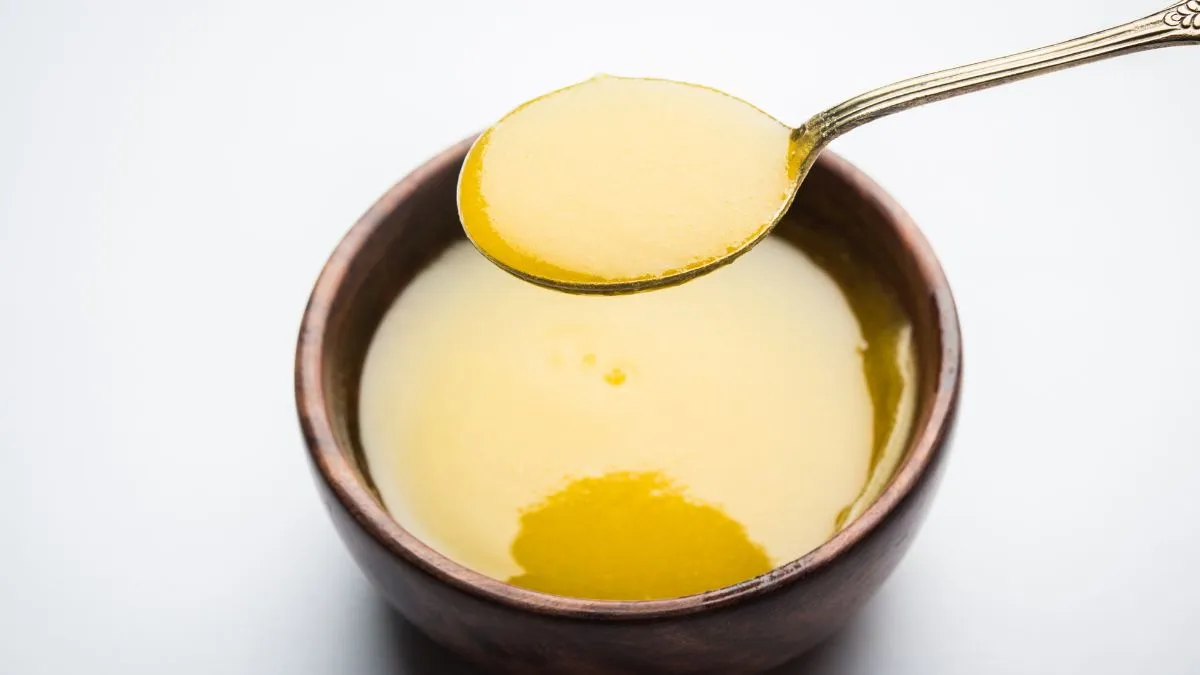- By Iram Hussain
- Wed, 27 Aug 2025 12:13 PM (IST)
- Source:JND
Cooking fats like oil and ghee play an important role in our kitchens and many people swear by ghee as the ultimate choice for preparing their meals. Hailed for its rich flavour and a high smoke point, ghee is considered a staple by many who believe it’s the best and healthiest option for cooking. However, in the ever-evolving world of nutrition, new information is constantly emerging. Nutritionist Suman Agarwal recently challenged this widely held belief in the podcast of Ranveer Allahabadia. She shared a different perspective, revealing that ghee may not always be the best option and instead pointed to other oils that are far superior for cooking vegetables. This new take has raised a question while encouraging people to reconsider their cooking choices and adopt healthier habits.
Is Ghee The Best Choice To Cook Vegetables?
The nutritionist said, "Why are people obsessed with ghee? What will you get out of ghee? Of course, cholesterol. But how much cholesterol? What about essential fatty acids which you will only get from an oil? She further added, put ghee on your chapati and may add a little bit to your rice. But the vegetables should be cooked in oil. When asked about the best oils for cooking, she replied, peanut, sunflower and rice bran oil are the healthier choices to cook the vegetables. Let's take a look at the benefits of each that will help you make a better decision.
Peanut Oil
Peanut oil is a great choice for cooking vegetables because of its high smoke point. It can handle high heat without burning or releasing harmful compounds. Its mild and nutty flavour is versatile and doesn't overshadow the natural taste of your vegetables, making it ideal for stir-frying or sautéing.

Healthy cooking oils (Image Credits: Canva)
Sunflower Oil
Sunflower oil is a great example of healthy cooking oils. It is rich in Vitamin E, low in saturated fats and high in polyunsaturated fats. With a smoke point of 475°F, it is also ideal for deep frying and sautéing.
Rice Bran Oil
Rice bran oil also has a high smoke point which makes it stable for high-heat methods like deep-frying and stir-frying. It also has a neutral flavour and a low absorption rate, resulting in less greasy food. Additionally, it offers a heart-healthy fat profile and contains antioxidants.
View this post on Instagram
Why Ghee Should Be Avoided?
Ghee contains a lot of saturated fats and eating too much can raise your cholesterol levels. While vegetables are a healthy, low-fat source of nutrients, cooking them in ghee can significantly increase the fat content. This change can turn a healthy, low-calorie meal into a high-calorie one. Over time, this habit can cause weight gain and raise your risk of heart disease.
Disclaimer: This content, including suggestions and advice, provides generic information only. It is in no way a substitute for qualified medical opinion. Always consult a specialist or your own doctor for more information before making any drastic changes in your lifestyle.

